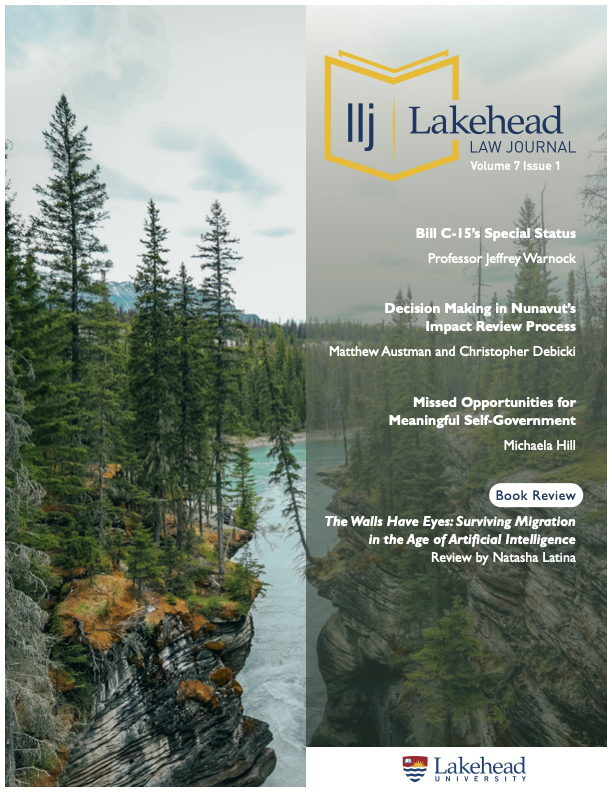Bill C-15’s Special Status - Assessing the Likelihood that An Act Respecting the United Nations Declaration on the Rights of Indigenous Peoples will be treated as Quasi-Constitutional
Abstract
In 2021, An Act Respecting the United Nations Declaration on the Rights of Indigenous Peoples (the “UNDRIP Act”), received Royal Assent. Despite the broad support for its passage, the impact of the UNDRIP Act and the UN Declaration on the Rights of Indigenous Peoples (“UNDRIP”) on Canadian law, including existing federal laws, remains unclear. Although neither the UNDRIP Act nor UNDRIP itself have been enshrined in the constitution, there is a possibility that the UNDRIP Act has, or will in the future, achieve quasi-constitutional status. Quasi-constitutionality is a well-established principle in Canadian law, which can elevate legislation into something akin to constitutional status, such that an inconsistency between these statutes and existing federal laws could result in existing laws being declared inoperable. This article is an attempt to determine whether the UNDRIP Act is a quasi-constitutional piece of legislation and if so, what the implications for that may be in terms of (1) the judicial interpretation of the UNDRIP Act; and (2) the UNDRIP Act’s impact on other pieces of federal legislation. The article proceeds in five parts. First, it identifies the conflicting positions regarding the place of UNDRIP in Canadian law considering the passage of the UNDRIP Act. Second, it summarizes the principle of quasi-constitutionality in Canadian law. Third, it examines whether there have been any cases commenting on the quasi-constitutionality of the UNDRIP Act. Fourth, it assesses whether, considering the standards set out in the jurisprudence, the UNDRIP Act may obtain quasi-constitutional status. Fifth, assuming the UNDRIP Act is quasi-constitutional, it examines the potential impacts of this finding. The article concludes that there is a high likelihood of the UNDRIP Act obtaining quasi-constitutional status and that the implications of this finding may have a significant impact on Indigenous rights in the years ahead.
Downloads
Published
Issue
Section
License
Authors retain original copyright and grant the LLJ first publication rights. Articles published in this open access journal are free to use, with proper attribution, for educational and non-commercial purposes.


